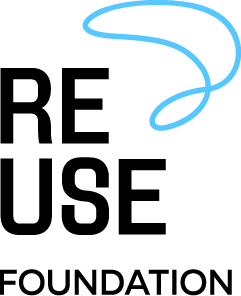Featured
Plastics Seen Materially Reducing Agricultural Yields |
|

|
A new study reveals that microplastic pollution is damaging plants' ability to photosynthesize, leading to an estimated loss of 4%-14% in global staple crop yields, such as wheat, rice and maize. With global agriculture worth $5 trillion a year, the cost of the yield reduction could easily exceed $500 billion annually.
The research, led by Nanjing University in China, used over 3,000 observations drawn from 157 studies of the impact of microplastics on plants, which show microplastics can harm plants in various ways: damaging the soil; blocking sunlight; impeding nutrient and water flow; and introducing toxic chemicals. The report said damage caused by plastics could exacerbate global hunger, potentially increasing the number of people at risk of starvation by 400 million within two decades. While the study emphasizes the urgent need for action to combat plastic pollution, researchers caution that further data is required for more accurate predictions.[Image Credit: © Marco Bubbio via Pixabay] |
Highlights
Polytag And Citeo Achieve 100% Detection Rate |
|
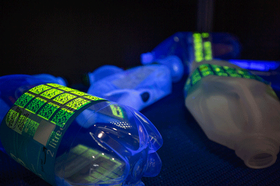
|
Polytag and Citeo achieved a 100% detection rate for UV-tagged single-use plastic bottles at a major materials recycling facility in France. Polytag's technology provides detailed lifecycle insights for plastic packaging and helps businesses comply with extended producer responsibility regulations. The UV tagging system allows brands to track packaging in real time, improving recycling processes and boosting sustainability initiatives. [Image Credit: © Polytag]
|
Plastic Waste Management Innovation Soars |
|

|
A new report from the Observatory on Patents and Technology reveals a surge in innovations for plastic waste management, aligning with global sustainability goals. Patenting activity in this field increased 18-fold since 1990, with Europe leading the charge, accounting for 44% of global patenting. The report highlights advances in waste recovery and recycling, driven by both large companies and emerging startups, particularly in AI and water purification technologies. Key players include Erema, Carbios and Tomra. [Image Credit: © European Patent Office]
|
Four Key Trends in US Sustainable Packaging |
|

|
The Sustainable Packaging Coalition's 2025 Trends Report highlights four major developments reshaping packaging sustainability in the US: innovation, with reusable packaging gaining traction; packaging design as companies move away from a one-size-fits-all approach, setting material-specific sustainability goals to enhance environmental outcomes; policy, such as Extended Producer Responsibility being implemented across several US states, redefining what qualifies as "recyclable" and holding producers accountable for packaging waste; and recovery, with specialized recyclers emerging to address gaps in municipal recycling programs. [Image Credit: © Pat McArdle on Unsplash]
|
New Policy Risks Unintended Surge In Plastic Packaging |
|
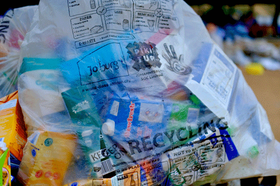
|
Instead of reducing plastic waste, the UK Government’s upcoming Extended Producer Responsibility scheme may unintentionally increase it. By charging producers based on packaging weight rather than unit count, the policy encourages a shift from heavier, recyclable materials like glass and paper to lighter, often unrecyclable plastics. Industry leaders warn this structure contradicts environmental goals and undermines sustainable packaging efforts. [Image Credit: © Calvin Sihongo on Unsplash]
|
Bridging The Intention-Behavior Gap For Sustainable Purchasing |
|
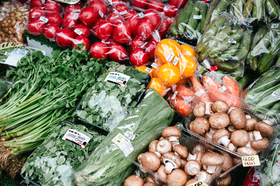
|
A new report reveals that while 76% of North American consumers say they support sustainable brands, only 38% follow through in their purchases. This gap stems largely from confusing or misleading sustainability claims, which deter nearly half of all shoppers — and 87% of the most committed — from buying eco-friendly products. Consumers prefer clear, immediate benefits like durability and health over abstract environmental promises. The study urges brands to simplify messaging, highlight personal benefits and avoid overwhelming language as over half say they will probably change purchase decisions for social or ethical reasons in the next 12 months. [Image Credit: © Markus Winkler on Unsplash]
|
Virgin Islands Sues Coca-Cola, Pepsi Over Plastic Waste |
|
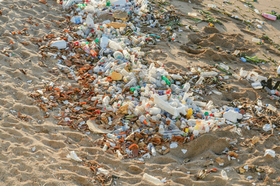
|
In civil lawsuits, the Virgin Islands government accuses Coca-Cola, PepsiCo and their local affiliates of fueling the territory’s plastic pollution crisis, alleging the beverage giants profit from single-use plastic bottles while misleading consumers about their recyclability and environmental impact. Plastic makes up 21% of solid waste on St. Thomas and landfill space is running out, and officials argue the companies shifted the responsibility for disposal onto the public. The lawsuit seeks to halt harmful practices, reclaim profits and require cleanup support. [Image Credit: © Aldward Castillo on Unsplash]
|
P&G’s Dissolution Tech Targets Plastic Waste At Scale |
|
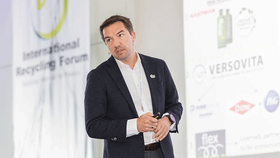
|
Procter & Gamble developed a patented dissolution recycling process to tackle plastic waste by enabling high-purity recycling of hard-to-recycle plastics like polypropylene and polyethylene. Unlike mechanical or chemical recycling, this method uses solvents to remove contaminants—such as dyes and residue—without breaking down the polymer, producing near-virgin quality recycled plastic. P&G says dissolution recycling lowers carbon emissions compared to virgin plastic production or incineration and supports circularity. P&G has licensed the technology to PureCycle Inc. and partnered with Dow to expand its application. [Image Credit: © Procter & Gamble]
|
UK Targets More Problematic Plastics For Removal |
|
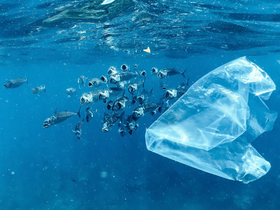
|
UK Plastics Pact members, covering two-thirds of the nation’s consumer plastic packaging, removed 33 billion problematic plastic items since 2018. Building on this progress, eight new plastic materials are now set for phased elimination by 2025 and 2027, including non-recyclable packaging in products like crisp packets, pet food pouches, grated cheese and wet wipes. The updated Elimination List aligns with England’s Simpler Recycling reforms, targeting plastics that disrupt recycling or lack viable end-of-life solutions. [Image Credit: © Naja Bertolt Jensen on Unsplash]
|
SC Johnson Is Redesigning Spray Triggers To Cut Plastic Waste |
|
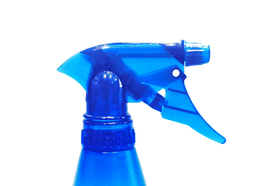
|
Spray triggers for household cleaning products often end up in landfills due to their complex, multi-material design. Made from mixed plastics and metals, they are nearly impossible to recycle using standard systems. Around 2.6 million tons of such multilayer packaging are discarded annually in the US. SC Johnson is addressing this issue through Design for Recycling, an approach that rethinks materials and construction for easier recycling. SC Johnson says that fully recyclable all plastic triggers will in future be the only triggers it uses for its products.[Image Credit: © Joshua Hoehne on Unsplash]
|
P&G Links Inclusive Packaging To Plastic Waste Reduction |
|
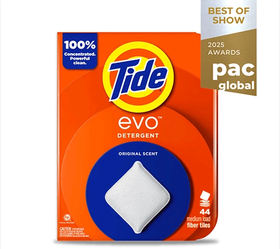
|
Procter & Gamble is advancing inclusive and sustainable packaging to reduce plastic waste while improving usability for all consumers, including those with disabilities. At the 2024 PAC Global Awards, P&G’s Tide evo earned top honors for replacing traditional plastic detergent bottles with Forest Stewardship Council™-certified recyclable paper packaging. This format not only minimizes plastic use but also enhances accessibility through tactile markers and easy-to-use design. OLAY Indulgent Moisture Body Wash also received recognition for accessible packaging, featuring tactile symbols and ergonomic bottles. [Image Credit: © Procter & Gamble]
|
Amazon Faces Shareholder Pressure On Plastic Packaging |
|
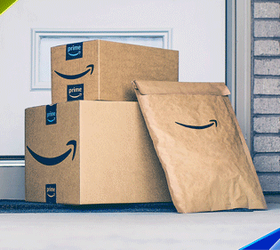
|
Amazon shareholders will vote on a resolution urging the company to disclose and reduce its use of flexible plastic packaging, following a US SEC ruling that blocked Amazon’s attempt to exclude the proposal. Advocacy group As You Sow filed the resolution, citing Amazon’s lack of transparency and failure to set plastic reduction goals. Amazon received an “F” on As You Sow’s 2024 Plastic Promises Scorecard. With its vast logistics network, any shift by Amazon could influence industry-wide packaging practices. The vote reflects growing investor calls for corporate accountability in addressing plastic waste and adopting sustainable packaging solutions.[Image Credit: © Amazon.com, Inc.]
|
Clorox Fined For Misleading Ocean Plastic Claims In Australia |
|
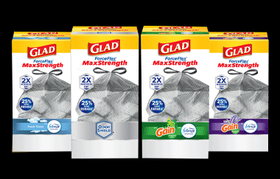
|
Clorox Australia faces a $8.25 million fine for falsely marketing Glad’s “50% Ocean Plastic Recycled” garbage bags as containing ocean-sourced recycled plastic. The Australian Competition and Consumer Commission found the bags were actually made from 50% plastic waste collected up to 50km inland in Indonesian communities lacking formal waste systems. Clorox sold over 2.2 million misleadingly labeled products between June 2021 and July 2023 and the ACCC stressed that such greenwashing misleads environmentally conscious consumers and harms honest competitors. Clorox cooperated with the investigation, discontinued the products, and must now implement a compliance program. [Image Credit: © The Clorox Company]
|
Aluminium Bottles Tackle Plastic Waste In Home Care |
|
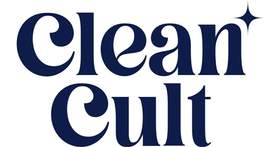
|
Clean Cult launched refillable aluminium bottles for its cleaning and laundry products at over 300 Costco locations and online. Refills come in paper-based cartons, and the products are plant-based and biodegradable. Similar efforts include Ball Corporation’s recyclable aluminium cartridges and Unilever’s acquisition of Wild, a brand using reusable aluminium packs.[Image Credit: © Cleancult]
|
Packaging Rules Push Companies To Cut Plastic Waste |
|
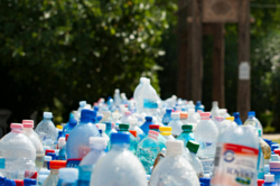
|
Stricter regulations like the EU's Packaging and Packaging Waste Regulation are pressuring companies to reduce plastic waste and embrace sustainable packaging, according to Euromonitor. With plastic representing two-thirds of global packaging, businesses are redesigning packaging to prioritize recyclability, eliminate harmful substances and use more mono-materials. Regulatory shifts also promote reuse/refill systems and discourage single-use plastics. Models like EcoCarga in Chile show how refills can cut consumer costs and plastic use. [Image Credit: © Mali Maeder from Pexels]
|
Indonesia Leverages Reuse To Cut Plastic Waste |
|

|
Indonesia is tackling its plastic crisis by prioritizing reuse over recycling, aiming to reduce the 7.8 million metric tons of plastic waste it generates annually. Nearly 5 million metric tons of this is mismanaged and over 1 million metric tons pollutes oceans. Government and civil society groups launched a "reuse road map" to scale refill and return systems across industries. Experts argue that reuse offers a more sustainable solution than recycling, which still dominates global investment. [Image Credit: © Streets of Food on Unsplash]
|
Plastic Recycling Stalls, But Waste And Emissions Rise |
|
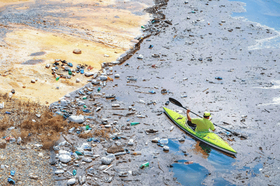
|
Global plastic recycling rates remain stagnant at under 10%, while plastic production surges, with 90% still made from fossil fuels, according to a study by Tsinghua University that looked at 2022 data. Researchers highlight economic and technical barriers to recycling, such as contamination and complex additives, and virgin plastic remains cheaper to produce, discouraging investment in recycling infrastructure. The US has the lowest recycling rate at just 5%, while incineration is rising globally as a disposal method, particularly in the EU, China and Japan. Landfill still accounts for 40% of plastic waste. [Image Credit: © Fayegh(Shamal) Shakibayi on unsplash.com]
|
UK Shoppers Alarmed By Microplastic Pollution |
|

|
Microplastics in oceans and waterways are the top concern for 58% of UK shoppers regarding plastic packaging, according to new research by Aquapak. These tiny plastic fragments, formed as packaging breaks down, pose environmental and potential health risks. Landfill, littering, incineration and false recycling claims rank lower among consumer concerns. The study highlights growing public demand for change, with 65% of respondents doubting that brands and retailers are doing enough to reduce plastic use. Most shoppers want plastic replaced with eco-friendly materials, preferring recyclable paper-based packaging and compostable alternatives. [Image Credit: © Sören Funk on Unsplash]
|
SC Johnson’s 2024 Report Highlights Plastic Waste Reduction |
|
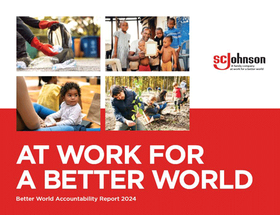
|
SC Johnson’s 2024 Better World Accountability Report showcases the company's efforts in addressing plastic pollution and sustainability. It met its 2025 goals a year early by reducing virgin plastic use and increasing recycled materials in packaging. SC Johnson also surpassed its target of reducing emissions by 70% since 2000 and continues to shift to renewable energy for its operations. The company promotes plastic waste awareness through initiatives like The Blue Paradox exhibit and supports global regulations, including the Global Plastics Treaty. [Image Credit: © S.C. Johnson & Son Inc.]
|
Unilever’s Wild's Acquisition Sparks Sustainability Concerns |
|

|
Unilever's acquisition of Wild, a brand known for refillable personal care products, raised hopes for broader accessibility to sustainable toiletries. Wild's products, including deodorant and body wash, come in reusable packaging, and refills are delivered in recyclable or compostable materials, helping to reduce plastic waste. Wild claims to have diverted over 750,000 kg of single-use plastic since its inception, but concerns emerged about whether Unilever’s focus on profitability could compromise Wild's sustainability mission. [Image Credit: © Unilever]
|
Microplastics In Human Brains Raise Health Concerns |
|
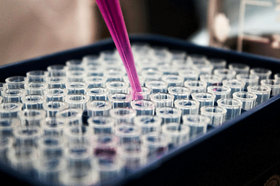
|
Researchers at the University of New Mexico are studying the growing presence of microplastics in human bodies, including brain tissue. Findings, published in Nature Medicine, show that human brains now contain significant amounts of microplastics – about 7 grams or around five water bottle caps' worth per brain - with higher concentrations in those with dementia. While the health impacts remain unclear, the study highlights the increasing accumulation of microplastics in various organs. These particles, primarily from older plastic waste, raise concerns about potential long-term health risks, including neurodegenerative diseases. Researchers are also investigating how microplastics enter the body, with studies linking them to air, water, and food sources.[Image Credit: © Louis Reed on Unsplash]
|
Shareholders Pressure Firms To Do More On Plastic Waste Reduction |
|
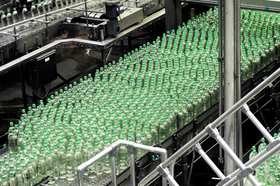
|
Plastic waste is under renewed scrutiny as shareholder resolutions target consumer goods, hospitality and food service companies. Advocacy groups like As You Sow and Green Century Funds are pushing firms to address risks tied to non-recyclable and flexible plastic packaging. Despite voluntary initiatives, companies have made limited progress, especially on recycling flexible films. Some, like PepsiCo and Kraft Heinz, oppose proposals but cite investments in compostable and paper-based alternatives. Reusable packaging also features prominently, with Coca-Cola and Starbucks agreeing to disclose progress after investor pressure. Shareholders are also challenging misleading recyclability claims, urging companies to phase out unclear labeling and improve transparency around recycled content to reduce plastic-related environmental and reputational risks.[Image Credit: © Waldemar on Unsplash]
|
How Nanoplastics Form And Why They’re Dangerous |
|
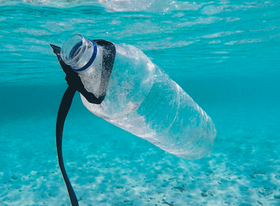
|
New research reveals how plastic breaks down into harmful nanoplastics, posing serious environmental and health risks. Led by Professor Sanat Kumar at Columbia Engineering, the study shows that semicrystalline plastics—used in 75–80% of plastic products—are structurally prone to fragmentation. These materials consist of alternating hard and soft molecular layers. Over time, environmental degradation weakens the soft layers, causing the more durable hard fragments to break off and persist in nature. These microscopic pieces can enter human cells, disrupt DNA and may contribute to diseases like cancer. [Image Credit: © Brian Yurasits on Unsplash]
|
